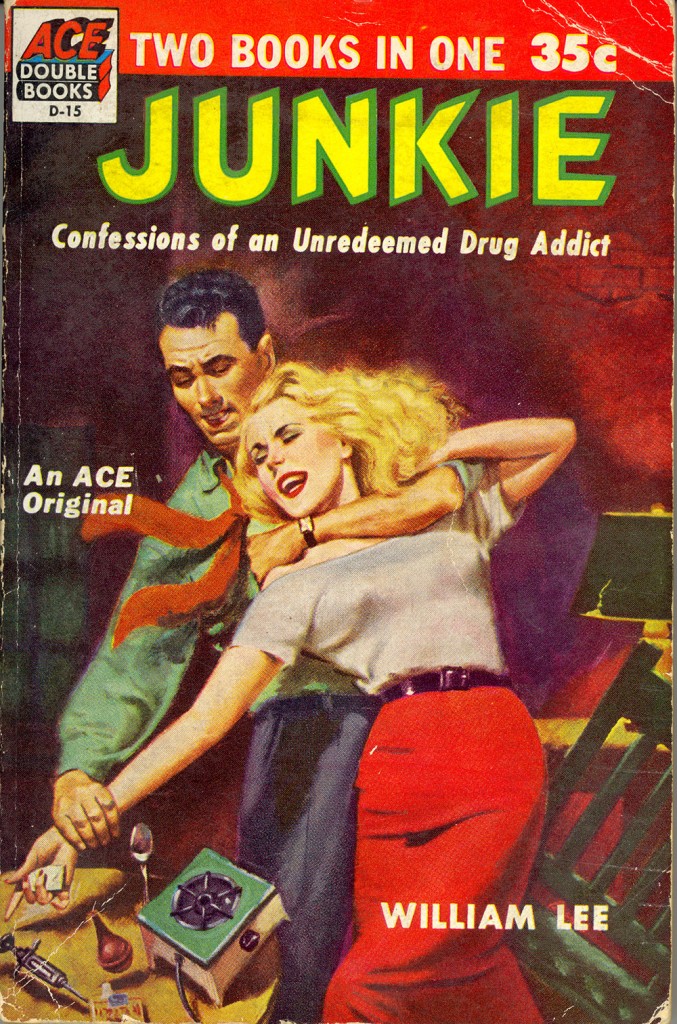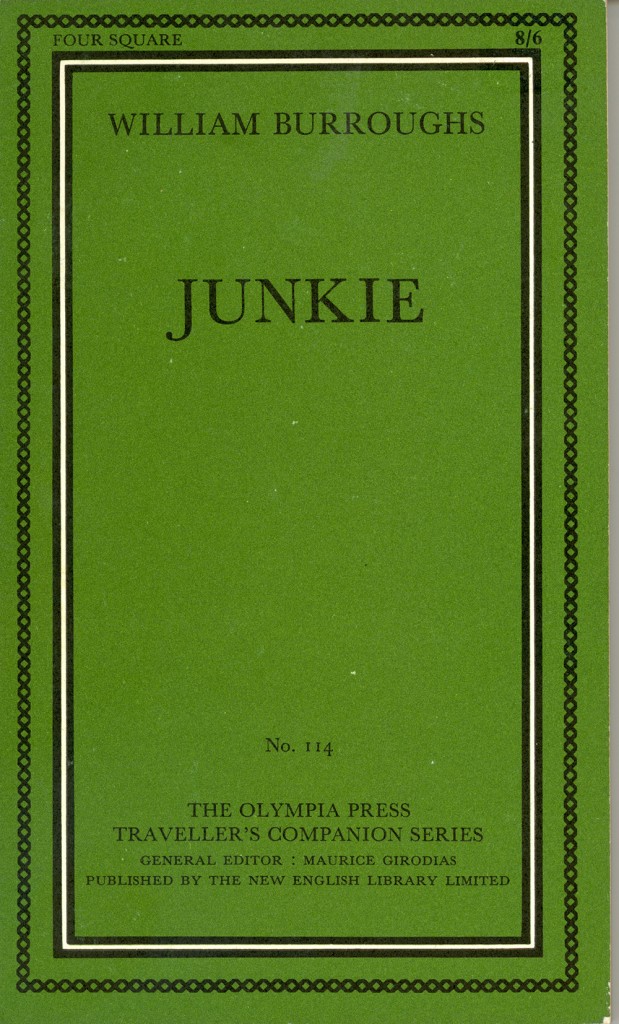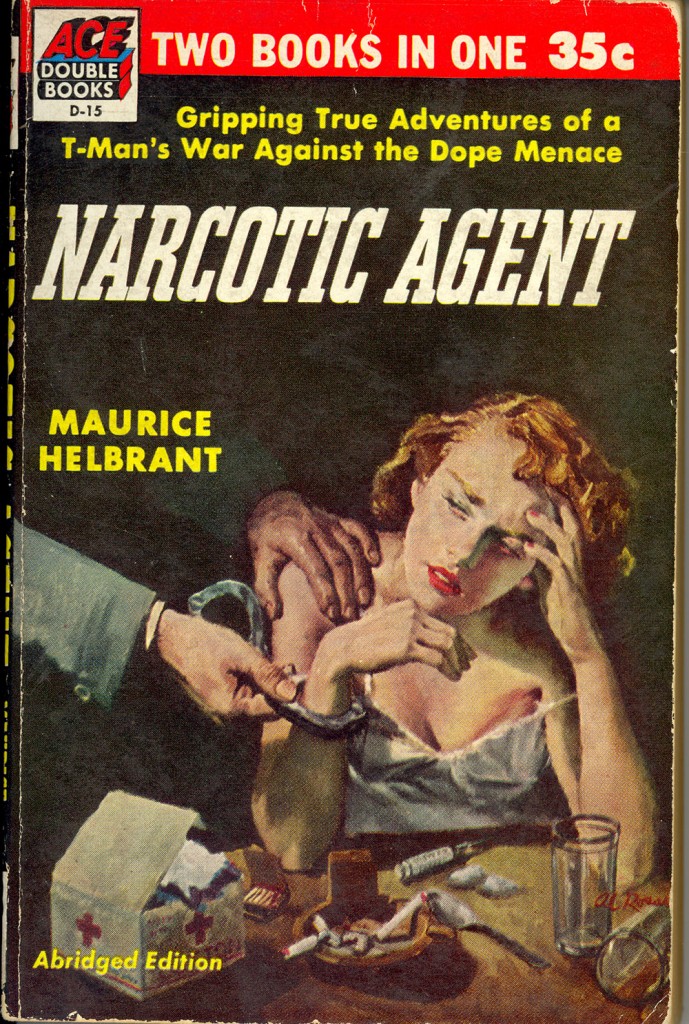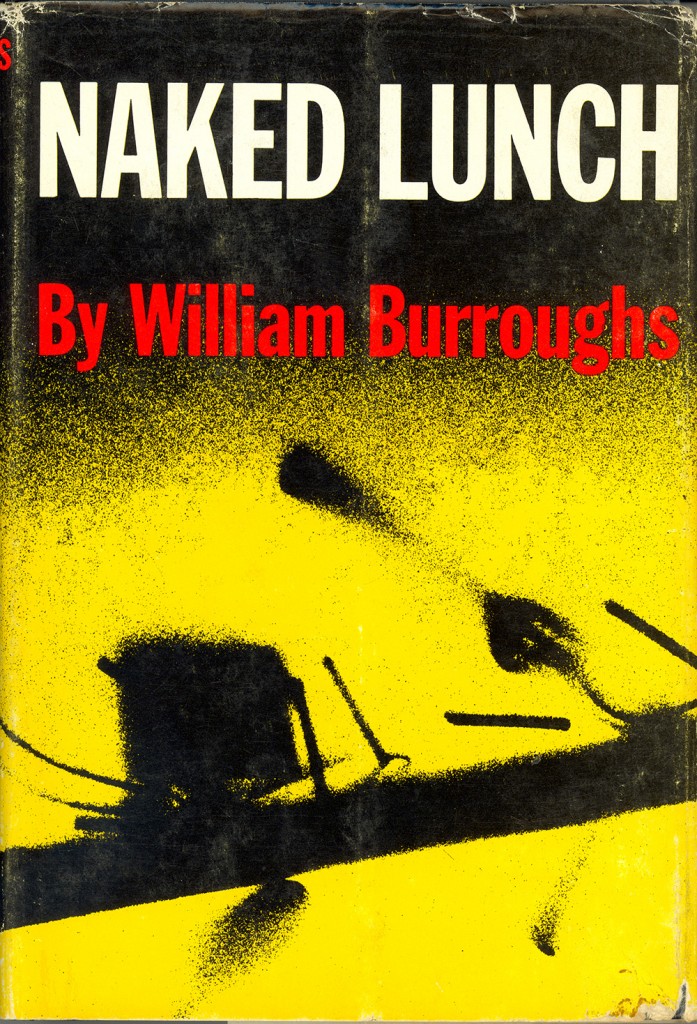 This post is part of an ongoing series featuring items from the Julio Mario Santo Domingo collection.
This post is part of an ongoing series featuring items from the Julio Mario Santo Domingo collection.
William S. Burroughs (1914-1997) looms large among countercultural figures of 20th-century literature. The seminal Naked lunch is a famous source of controversy – it was banned in Boston in 1962, and ultimately redeemed in a 1966 obscenity trial before the Massachusetts Supreme Judicial Court – but is only part of a much larger oeuvre of fiction, essays, and visual art. While Houghton Library already held a considerable Burroughs collection, the acquisition of the Santo Domingo Collection has expanded our holdings to include literary journal contributions, collaborative texts, and other works.
Prior to making his name, Burroughs struggled to find a publisher. His first manuscript, Junkie, was a semi-autobiographical account of heroin addiction and dealing. It was rejected repeatedly, and would not have seen print but for the efforts of Allen Ginsberg, who had a connection to the pulp true-crime and detective publisher Ace Books. Burroughs’s first published novel therefore appeared under the pseudonym William Lee, in a dos-a-dos volume with a true-crime novel titled Narcotic agent; both covers feature lurid illustrations of troubled addicts. The text was also edited; among other changes, Ace excluded all references to Burroughs’s homosexuality. Cheaply produced and disposable, this edition is now quite rare; the Santo Domingo Collection adds two copies to Houghton’s collections. Its twin covers are pictured here alongside the more literary presentation of a later Olympia Press edition.
Burroughs’s fortunes would improve dramatically with his next book. Naked Lunch is his most famous novel, and an early indication of the experimentation that would characterize much of his later writing: rather than a linear narrative, the text is a series of vignettes involving the junkie William Lee, intended to be read in any order. It was first published in Paris by Olympia Press in 1959 under the title The naked lunch; it did not appear under an American imprint until Grove Press published a substantially expanded American edition in 1962, pictured here. It was also in 1962 that Norman Mailer referred to Burroughs as “the only American novelist living today who may conceivably be possessed of genius”. In its unconventional structure; its sardonic, darkly comic tone; and its explicit depictions of violence, drug use, and sexuality, Naked Lunch exemplifies Burroughs’s style.
Junkie: AC95.B9458.953j (B)
Naked lunch: AC95.B9458.959nb (B)
Thanks to rare book cataloger Ryan Wheeler for contributing this post.



